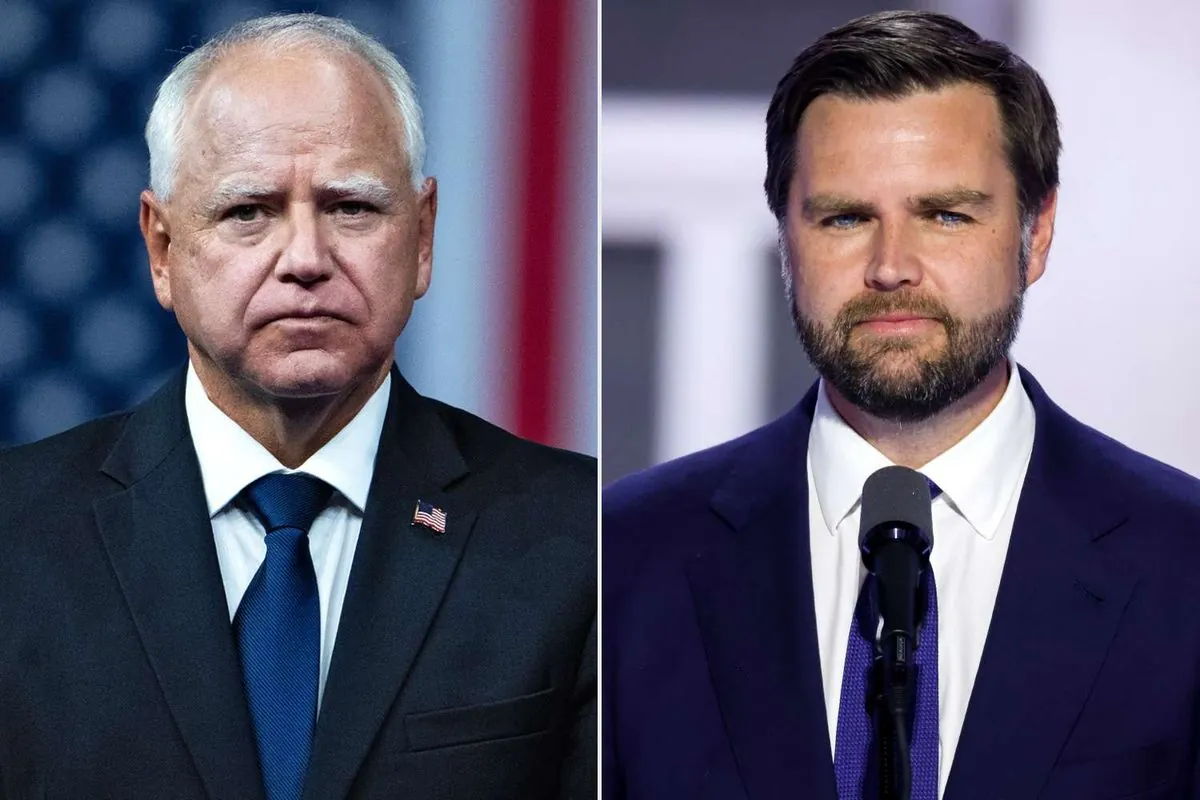Vance and Walz Set for October Debate, Harris Campaign Confirms Single VP Face-off
Republican VP candidate JD Vance agrees to debate Tim Walz on October 1. Harris campaign confirms one VP debate, while Trump and Harris prepare for September 10 presidential clash on ABC News.

In the lead-up to the November 5, 2024 U.S. presidential election, the debate schedule is taking shape. JD Vance, the Republican vice presidential candidate, has agreed to face off against his Democratic counterpart, Tim Walz, on October 1, 2024, in a CBS-hosted debate. This announcement comes as the campaigns finalize their debate strategies.
Vance expressed his willingness to participate in multiple debates, stating on social media platform X, "The American people deserve as many debates as possible." He also accepted an invitation from CNN for a September 18 debate. However, the Harris campaign has clarified that only one vice presidential debate is planned.
The vice presidential debate tradition in the United States has a rich history, dating back to 1976. Since then, these face-offs have become integral to the election process, offering voters insights into the potential second-in-command.
"The American people deserve as many debates as possible."
On the presidential front, Donald Trump and Kamala Harris are scheduled to debate on September 10, 2024, on ABC News. This debate holds particular significance as it marks Harris' first presidential debate since replacing Joe Biden as the Democratic candidate. The Harris campaign has confirmed plans for a second presidential debate in October, though the Trump campaign has not yet verified this timing.

The importance of these debates cannot be overstated. Historically, they have played a crucial role in shaping public opinion. The first televised presidential debate between Kennedy and Nixon in 1960 demonstrated the power of visual media in politics. Since then, debates have evolved, with the Commission on Presidential Debates organizing them since 1988.
Trump's participation in these debates was initially uncertain. He had declined to attend debates during the Republican primary campaign and suggested he might skip the ABC matchup after Harris entered the race. However, he has since agreed to participate and even proposed additional debates on Fox and NBC.
The previous debate between Trump and Biden in June 2024 had significant consequences, ultimately leading to Biden's departure from the race. This underscores the potential impact of these televised encounters on the electoral landscape.
Harris' entry into the presidential race in late July 2024 has transformed the contest. Recent opinion polls indicate that she has largely erased Trump's lead in key battleground states, energizing the Democratic party and boosting fundraising efforts.
As the debates approach, both campaigns are likely strategizing intensively. The use of real-time fact-checking during debates has increased in recent years, adding another layer of scrutiny to candidates' statements. Additionally, debate formats have evolved, with the "town hall" style introduced in 1992 offering a more direct interaction with voters.
The upcoming debates promise to be pivotal moments in the 2024 election cycle, potentially drawing massive viewership. For context, the first presidential debate between Trump and Clinton in 2016 was the most-watched in U.S. history, with 84 million viewers tuning in.
As the nation prepares for these crucial political events, the impact of these debates on the electoral outcome remains to be seen. With the election just months away, every word and gesture on the debate stage could prove decisive in shaping the future leadership of the United States.


































